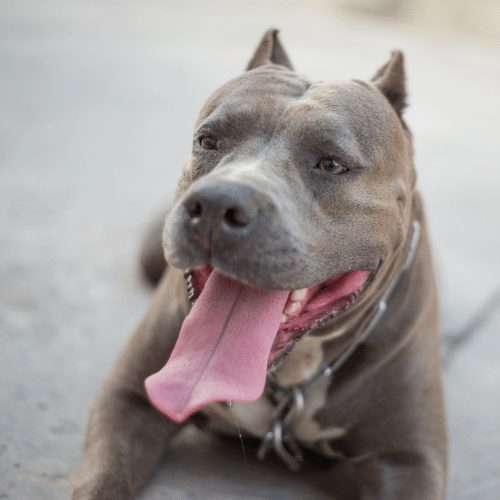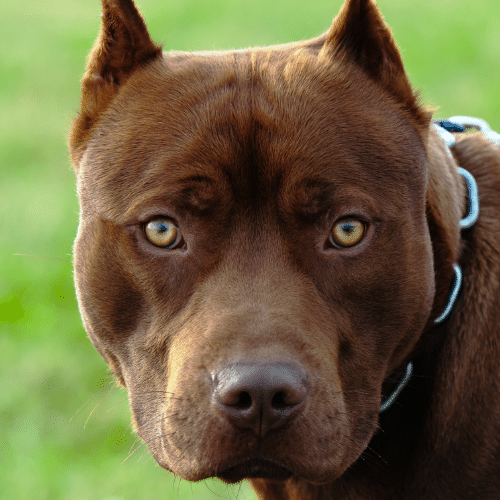How long do pitbulls live?
The average lifespan of a male pitbull is 12 to 14 years. This is shorter than the average lifespan of female pitbulls, which is 13 to 15 years. There are a number of factors that can affect a pitbull's lifespan, including genetics, diet, exercise, and overall health.
Pitbulls are a type of dog that is known for its strength and athleticism. They are often used as working dogs, such as police dogs and military dogs. Pitbulls are also popular family pets. They are known for being loyal, affectionate, and protective of their loved ones.
Read also:Uncovering The Roots Of Nicholas Saputra An Ethnic Exploration
There are a number of things that you can do to help your pitbull live a long and healthy life. These include providing him with a healthy diet, plenty of exercise, and regular veterinary care.
If you are considering getting a pitbull, it is important to do your research and learn about the breed's needs. Pitbulls can be great companions, but they also require a lot of care and attention.
pitbull lifespan male
The pitbull lifespan male is a topic of interest to many dog owners and potential owners. Pitbulls are a type of dog that is known for its strength and athleticism. They are often used as working dogs, such as police dogs and military dogs. Pitbulls are also popular family pets. They are known for being loyal, affectionate, and protective of their loved ones.
- Average lifespan: 12 to 14 years
- Factors affecting lifespan: genetics, diet, exercise, overall health
- Common health problems: hip dysplasia, elbow dysplasia, skin allergies
- Importance of spaying or neutering: can help to prevent certain health problems and prolong lifespan
- Responsible ownership: providing a healthy diet, plenty of exercise, and regular veterinary care
- Pitbulls as family pets: loyal, affectionate, and protective
- Pitbulls as working dogs: used as police dogs and military dogs
These are just a few of the key aspects to consider when discussing the pitbull lifespan male. By understanding these aspects, you can help your pitbull live a long and healthy life.
1. Average lifespan
The average lifespan of a male pitbull is 12 to 14 years. This is shorter than the average lifespan of female pitbulls, which is 13 to 15 years. There are a number of factors that can affect a pitbull's lifespan, including genetics, diet, exercise, and overall health.
- Genetics: The genetics of a pitbull can play a role in its lifespan. Pitbulls that are bred from healthy parents are more likely to live longer than those that are bred from unhealthy parents.
- Diet: The diet of a pitbull can also affect its lifespan. Pitbulls that are fed a healthy diet are more likely to live longer than those that are fed a diet that is high in fat and calories.
- Exercise: Exercise is important for pitbulls of all ages. Pitbulls that get regular exercise are more likely to live longer than those that do not get enough exercise.
- Overall health: The overall health of a pitbull can also affect its lifespan. Pitbulls that are healthy are more likely to live longer than those that are unhealthy.
By understanding these factors, you can help your pitbull live a long and healthy life.
Read also:The Ultimate Download Hub Your Gateway To Limitless Content
2. Factors affecting pitbull lifespan male
The lifespan of a pitbull male is influenced by a combination of factors, including genetics, diet, exercise, and overall health. Understanding the impact of these factors can help owners make informed decisions to promote the well-being and longevity of their canine companions.
- Genetics: The genetic makeup of a pitbull can play a significant role in determining its lifespan. Pitbulls with a family history of longevity are more likely to have a longer lifespan themselves. Inbreeding and poor breeding practices can increase the risk of genetic disorders, which can shorten a dog's life.
- Diet: A healthy diet is essential for pitbulls of all ages. A diet that is high in protein and low in fat can help to maintain a healthy weight and prevent obesity, which can contribute to a shorter lifespan. Pitbulls should also have access to clean, fresh water at all times.
- Exercise: Exercise is another important factor in pitbull lifespan. Pitbulls are active dogs that require regular exercise to stay healthy and happy. Exercise can help to strengthen muscles and joints, prevent boredom, and reduce stress, all of which can contribute to a longer lifespan.
- Overall health: The overall health of a pitbull can also affect its lifespan. Pitbulls that are healthy are more likely to live longer than those that are unhealthy. Regular veterinary checkups and vaccinations can help to prevent and treat health problems and ensure that a pitbull receives the proper care it needs to live a long and healthy life.
By understanding the factors that affect pitbull lifespan male, owners can make informed decisions to help their dogs live longer, healthier lives. Providing a healthy diet, regular exercise, and appropriate veterinary care can significantly improve a pitbull's chances of reaching its full life expectancy.
3. Common health problems
Certain health problems are more common in pitbulls than in other breeds. These health problems can affect a pitbull's lifespan and quality of life. Some of the most common health problems seen in pitbulls include hip dysplasia, elbow dysplasia, and skin allergies.
- Hip dysplasia is a condition that affects the hip joint. It is caused by a malformation of the hip socket, which allows the hip joint to become loose and unstable. Hip dysplasia can cause pain, lameness, and arthritis. In severe cases, it can lead to hip replacement surgery.
- Elbow dysplasia is a condition that affects the elbow joint. It is caused by a malformation of the elbow joint, which can lead to pain, lameness, and arthritis. In severe cases, it can lead to elbow replacement surgery.
- Skin allergies are a common problem in pitbulls. They can be caused by a variety of factors, including food allergies, environmental allergies, and contact allergies. Skin allergies can cause itching, redness, and inflammation. In severe cases, they can lead to skin infections.
These are just a few of the health problems that can affect pitbulls. By understanding the risks, you can take steps to prevent or treat these problems and help your pitbull live a long and healthy life.
4. Importance of spaying or neutering
Spaying or neutering your pitbull is one of the most important things you can do to help them live a long and healthy life. Spaying or neutering is a surgical procedure that removes the reproductive organs of your pitbull. This can help to prevent a number of health problems, including certain types of cancer, and can also help to prolong your pitbull's lifespan.
- Reduced risk of cancer: Spaying or neutering your pitbull can help to reduce their risk of developing certain types of cancer, including mammary cancer, ovarian cancer, and testicular cancer.
- Prevention of unwanted litters: Spaying or neutering your pitbull can help to prevent unwanted litters. This can help to control the population of pitbulls and can also help to prevent the spread of disease.
- Improved behavior: Spaying or neutering your pitbull can help to improve their behavior. This can include reducing aggression, roaming, and marking territory.
- Longer lifespan: Studies have shown that spayed or neutered pitbulls have a longer lifespan than intact pitbulls. This is likely due to the fact that spayed or neutered pitbulls are less likely to develop certain health problems.
Spaying or neutering your pitbull is a safe and effective way to help them live a long and healthy life. If you are considering getting a pitbull, be sure to talk to your veterinarian about the benefits of spaying or neutering.
5. Responsible ownership
Responsible ownership is essential for the health and well-being of any dog, including pitbulls. Providing a healthy diet, plenty of exercise, and regular veterinary care can help to extend a pitbull's lifespan and improve its quality of life.
- Healthy diet: A healthy diet is one of the most important things you can provide for your pitbull. A diet that is high in protein and low in fat will help to maintain a healthy weight and prevent obesity, which can contribute to a shorter lifespan. Pitbulls should also have access to clean, fresh water at all times.
- Plenty of exercise: Exercise is another important part of a healthy lifestyle for pitbulls. Pitbulls are active dogs that require regular exercise to stay healthy and happy. Exercise can help to strengthen muscles and joints, prevent boredom, and reduce stress, all of which can contribute to a longer lifespan.
- Regular veterinary care: Regular veterinary care is essential for detecting and treating health problems early on. Veterinary checkups can help to identify and prevent health problems, such as heart disease, cancer, and diabetes. Vaccinations can also help to protect your pitbull from deadly diseases.
By providing your pitbull with a healthy diet, plenty of exercise, and regular veterinary care, you can help them live a long and healthy life.
6. Pitbulls as family pets
Pitbulls are often misunderstood as aggressive dogs, but they can make wonderful family pets. They are loyal, affectionate, and protective, and they form strong bonds with their human companions. This can have a positive impact on their lifespan, as dogs that are well-loved and cared for are more likely to live longer, healthier lives.
There are a number of reasons why pitbulls make good family pets. They are intelligent and eager to please, which makes them easy to train. They are also very loyal and protective, and they will always be there for their loved ones. Pitbulls are also great with children, and they are known for being gentle and patient.
Of course, no dog is perfect, and pitbulls can have some challenges. They can be strong-willed and independent, which can make them difficult to train. They can also be territorial, and they may not always get along with other dogs. However, with proper training and socialization, pitbulls can overcome these challenges and become wonderful companions.
If you are considering getting a pitbull, be sure to do your research and learn about the breed. Pitbulls are not for everyone, but they can make wonderful family pets for those who are willing to put in the time and effort to train and socialize them.
7. Pitbulls as working dogs
Pitbulls have a long history of being used as working dogs. Their strength, athleticism, and intelligence make them ideal for a variety of tasks, including police work and military service. Pitbulls have been used to track down criminals, apprehend suspects, and protect military personnel and property.
The use of pitbulls as working dogs has a number of benefits. First, pitbulls are highly trainable and can learn to perform a variety of tasks. Second, pitbulls are very loyal and protective, making them ideal for guarding and security work. Third, pitbulls are relatively low-maintenance dogs and can be easily cared for in a variety of environments.
While pitbulls can make excellent working dogs, it is important to note that they require a lot of training and socialization to be successful in this role. Pitbulls that are not properly trained and socialized can be dangerous. Therefore, it is important to only work with reputable breeders and trainers when considering a pitbull for working dog purposes.
The use of pitbulls as working dogs has a number of benefits, including their trainability, loyalty, and low-maintenance nature. However, it is important to note that pitbulls require a lot of training and socialization to be successful in this role. Therefore, it is important to only work with reputable breeders and trainers when considering a pitbull for working dog purposes.
FAQs about Pitbull Lifespan Male
This section addresses frequently asked questions about the average lifespan of male pitbulls, providing concise and informative answers to common concerns and misconceptions.
Question 1: What is the average lifespan of a male pitbull?
The average lifespan of a male pitbull is typically between 12 to 14 years. This can vary depending on factors such as genetics, diet, and overall health.
Question 2: What factors can affect the lifespan of a male pitbull?
Several factors can influence the lifespan of a male pitbull, including genetics, diet, exercise, and overall health. Providing a healthy diet, regular exercise, and proper veterinary care can contribute to a longer lifespan.
Question 3: Are there any common health problems that can affect male pitbulls?
Male pitbulls may be prone to certain health issues, such as hip dysplasia, elbow dysplasia, and skin allergies. Regular veterinary checkups and early detection can help manage these conditions and improve the dog's overall well-being.
Question 4: How can I help my male pitbull live a longer, healthier life?
To promote longevity and enhance the quality of life for your male pitbull, focus on providing a balanced diet, ensuring regular exercise, maintaining a healthy weight, and seeking timely veterinary care for checkups and vaccinations.
Question 5: Is it true that spaying or neutering a male pitbull can prolong its lifespan?
Spaying or neutering a male pitbull can have potential health benefits, including a reduced risk of certain types of cancer and improved behavior. While it may not directly extend the lifespan, it can contribute to a healthier and more fulfilling life for the dog.
Remember, every dog is unique, and individual lifespans may vary. Providing a loving and supportive environment, along with responsible care and attention to your pitbull's health and well-being, can significantly contribute to its longevity and overall happiness.
For further information and guidance on caring for your pitbull, consult with a qualified veterinarian or reputable breeder who can provide personalized advice tailored to your dog's specific needs.
Conclusion on Pitbull Lifespan Male
In summary, the average lifespan of a male pitbull ranges from 12 to 14 years, influenced by factors such as genetics, nutrition, exercise, and overall health. Responsible ownership practices, including a balanced diet, regular physical activity, and preventive veterinary care, can contribute to a longer and healthier life for these dogs.
Understanding the potential health issues associated with pitbulls, such as hip dysplasia, elbow dysplasia, and skin allergies, is crucial for early detection and appropriate management. Spaying or neutering may offer additional health benefits and behavioral improvements. It is essential to provide a supportive and loving environment for pitbulls, addressing their exercise needs, mental stimulation, and socialization to promote their well-being and longevity.
Remember, each pitbull is unique, and individual lifespans may vary. By partnering with a reputable breeder or consulting with a qualified veterinarian, you can gain personalized guidance on caring for your canine companion and ensuring their optimal health and happiness throughout their lifetime.


